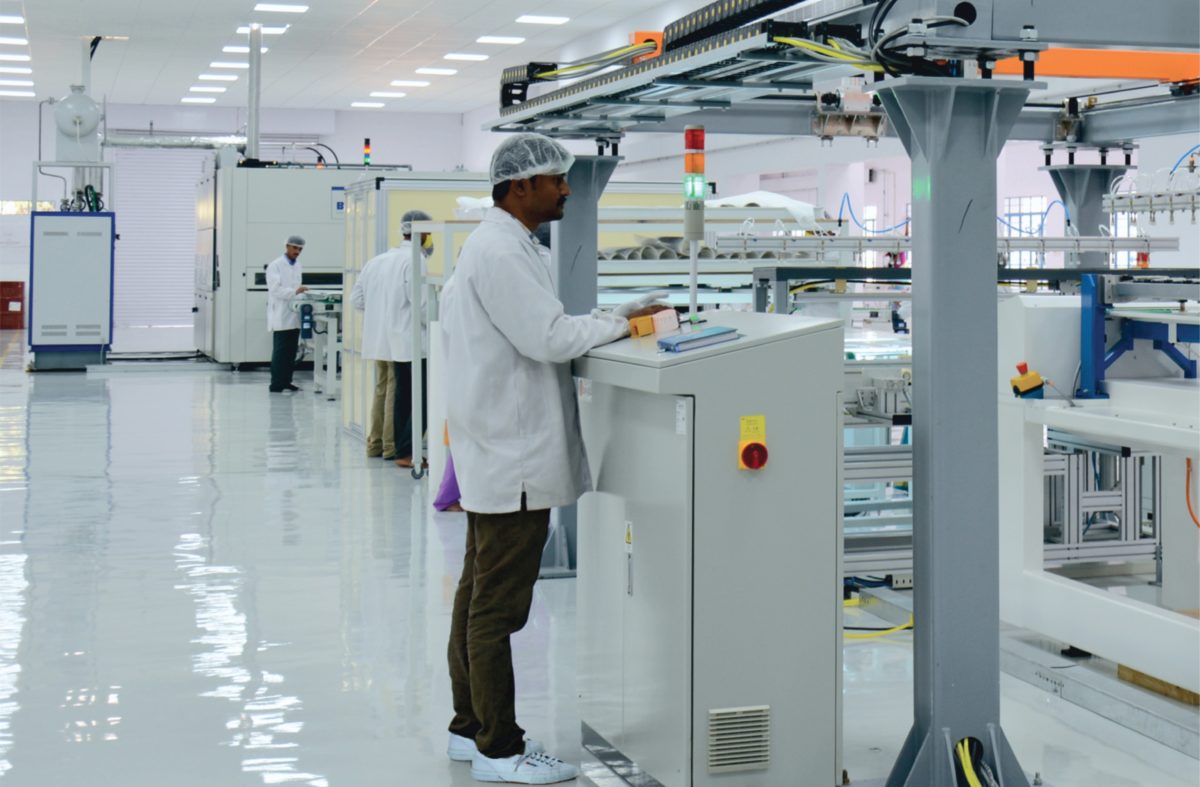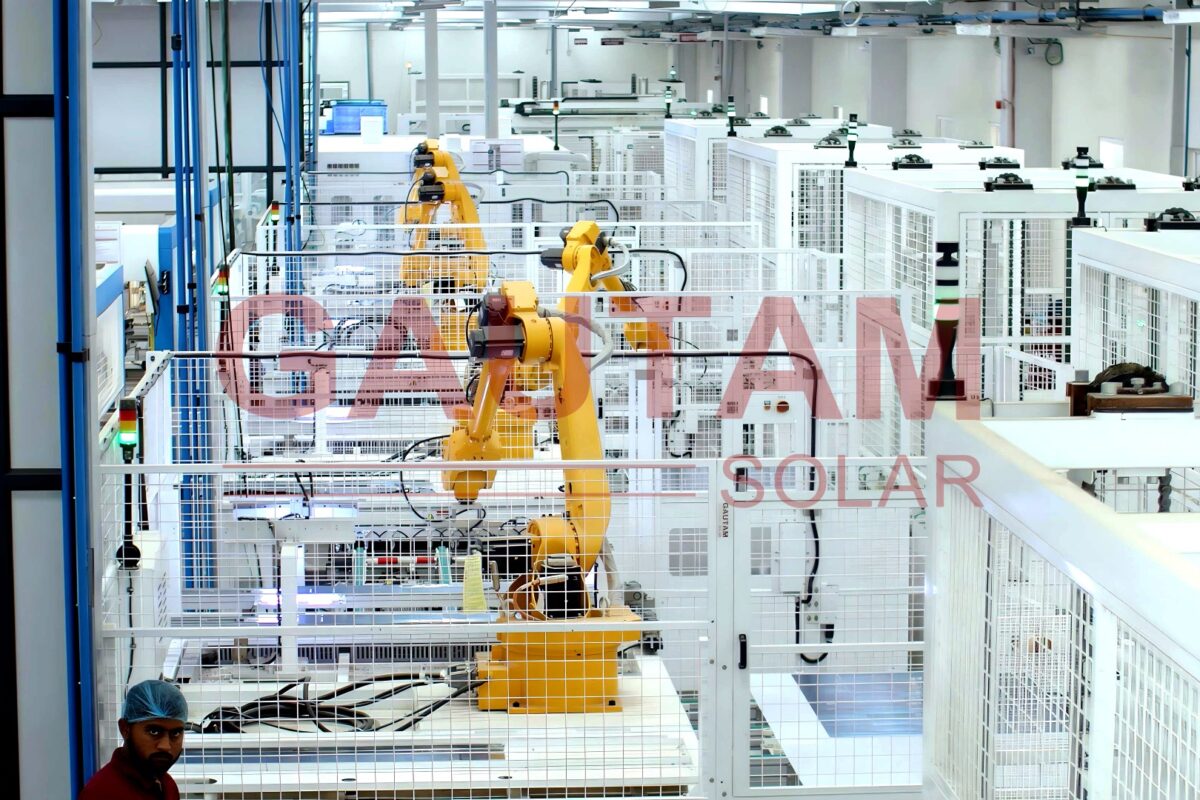The much-delayed, much reduced manufacturing-linked solar tender by the Solar Energy Corporation of India (SECI) is reported to have finally succeeded in attracting bidders. In fact, daily newspaper The Hindu Business Line has reported three developers have come forward with the result the much-criticized exercise has ended up oversubscribed – at least in terms of the generation capacity carrot on offer.
The newspaper reported Adani Green Energy has bid for 4 GW of solar project generation capacity in return for agreeing to establish new manufacturing facilities with an annual production capacity of 1 GW of solar products. The Business Line added, Azure Power – the only developer to consistently demonstrate interest in the exercise – has pitched 500 MW of new manufacturing capacity in a bid to secure 2 GW of solar project concessions and newcomer Navyug Power offered an identical bid.
The four-to-one ratio of manufacturing-to-project capacity indicates all three bidders are focusing their manufacturing offer on producing cells and/or modules as that is the ratio applied to those sorts of production fab under the last change to the terms of the tender, made last month.
Solar ingot and wafer production lines would secure only three times as much project capacity as manufacturing commitment under the tender, which is currently aiming to secure 2 GW of manufacturing capacity by offering 7 GW of projects. Under the terms of the exercise, the manufacturing bids accepted will be for 500 MW of each of ingot, wafer, cell and module capacity.
If the newspaper report is accurate, SECI would appear to have the choice of amending the tender yet again or allocating just half the cell and/or module manufacturing capacity desired and failing to secure any new ingot and wafer making operations.
The troubled procurement exercise was launched in May last year with the aim of securing 5 GW of solar manufacturing facilities by offering 10 GW of project capacity on a two-for-one basis. SECI’s ‘world’s largest solar tender’ was met with little enthusiasm and was subsequently scaled back to 3 GW of manufacturing for 10 GW of project capacity.
The deadline was extended and eventually attracted only one bidder – Azure – which, after six extensions to the bidding deadline, offered 600 MW of manufacturing commitments in return for 2 GW of generation capacity, SECI initially showed a willingness to bend the rules but the government rejected Azure’s suggested solar electricity tariff for that 2 GW of 25-year power purchase agreement (PPA) guaranteed generation capacity. By that stage, the original PPA tariff cap of Rs2.75/kWh had been raised to Rs2.85/kWh.
In January the exercise was scaled back again, to 1.5 GW of manufacturing facilities linked to 3 GW of project capacity. By June, following a further four extensions to the bidding deadline, the figure had risen to 2 GW of production lines and 6 GW of solar capacity and a further 1 GW of project capacity was added last month, along with the stipulation the manufacturing element be divided equally into blocks of ingot, wafer, cell and module fabs.
It is that latter iteration, which included a raised tariff cap of Rs2.93/kWh, which now appears to have stirred some interest among developers.
“The execution of this tender is estimated to lead to an investment in manufacturing of close to Rs6,000 crore, and a total investment of Rs35,000 crore may be needed to complete all the bid commitments,” stated the Business Line report, quoting one of the bidders.
The establishment of a solar manufacturing value chain is crucial for India as it chases a goal of 100 GW of solar generation capacity by 2022, and of eventually supplying 40% of Indian electricity from clean energy sources.
According to thinktank The Energy and Resources Institute, India imports almost 85% of the 10 GW of solar equipment it deploys annually, despite possessing almost 11 GW of domestic solar module production capacity and around 3 GW of cell output.
This content is protected by copyright and may not be reused. If you want to cooperate with us and would like to reuse some of our content, please contact: editors@pv-magazine.com.









By submitting this form you agree to pv magazine using your data for the purposes of publishing your comment.
Your personal data will only be disclosed or otherwise transmitted to third parties for the purposes of spam filtering or if this is necessary for technical maintenance of the website. Any other transfer to third parties will not take place unless this is justified on the basis of applicable data protection regulations or if pv magazine is legally obliged to do so.
You may revoke this consent at any time with effect for the future, in which case your personal data will be deleted immediately. Otherwise, your data will be deleted if pv magazine has processed your request or the purpose of data storage is fulfilled.
Further information on data privacy can be found in our Data Protection Policy.